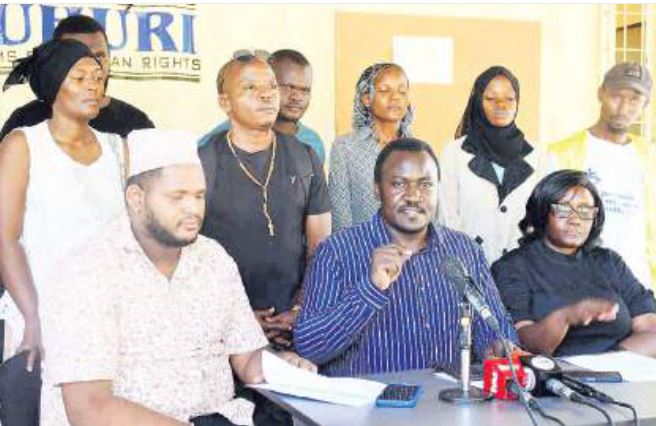
Revenue collected by the Mombasa county government from single business permits is not commensurate to service delivery, research has shown.
The county collects up to Sh597 million annually from these permits.
However, many traders have complained about poor service delivery, citing neglected roads, non-functional streetlights, and an unconducive business environment.
A study by the Coast Civil Society Network for Human Rights in December last year examined Mombasa’s own-source revenue within Mvita Subcounty, which houses the Mombasa CBD.
Supported by UKAID from December 9–19, the research mapped out 14,808 main businesses and 18,562 sub-businesses within Mvita.
Majengo ward has the highest number of businesses, while Tudor has the lowest within the Island.
The Old Town and Makadara area recorded the highest number of sub- businesses.
Trade licensing fees within Mvita Subcounty alone have an estimated revenue potential of Sh276.5 million, with small businesses being the primary contributors.
Mvita Subcounty accounts for approximately 45 per cent of the county’s total estimated revenue potential of Sh609 million from single business permits.
Muslims for Human Rights Executive Director Walid Kassim said they deployed 25 youths within Mvita subcounty to conduct the research.
Among the key findings were significant service delivery gaps, including inadequate drainage systems and flooding.
About 45 per cent of businesses in Majengo and Tononoka reported flooding during the rainy season, increasing operational costs. Irregular waste collection was another concern, with 38 per cent of businesses in Majengo and Tudor noting inconsistent garbage collection.
“Many traders have resorted to hiring private waste management companies,” Kassim said.
Poor road maintenance was also flagged, with 35 per cent of businesses in Ganjoni, Shimanzi and Tononoka complaining about impassable roads.
Security concerns were raised, with 40 per cent of businesses in Tononoka and Ganjoni citing insecurity due to inadequate street lighting.
Additionally, mistrust in licensing and enforcement was prevalent, as 55 per cent of businesses reported experiencing or hearing about officers demanding bribes to avoid enforcement.
Only 20 per cent of businesses had a positive view of the revenue enforcement process. Despite these challenges, 72 per cent of small businesses in Mvita, particularly in Majengo and Old Town, continue to operate, show casing strong economic resilience.
There is also a high demand for improved services, with 64 per cent of business owners in Ganjoni and Shimanzi willing to pay higher trade fees if service delivery improves.
Coast Civil Society Network for Human Rights Chairperson Zedekiah Adika noted that Mombasa collects up to 90 per cent of single business permit revenue within Mvita.
He questioned the lack of visible benefits from these funds.
“Mvita Subcounty alone generates over Sh276 million, yet traders see no tangible benefits from this revenue,” Adika said.
He emphasised that counties in the coastal region receive substantial funding, both from own-source revenue and the national government and called for better service delivery to reflect these collections.
Adika urged the Mombasa County Assembly to engage traders in policy discussions to create a conducive business environment.
“The county assembly, governor and executive members should open up discussions to get community input on business policies,” he said.
He also questioned why Mombasa Governor Abdulswamad Nassir has not issued a state of the county address since taking office in September 2022.
“I don’t understand why we haven’t had a state of the county address in two years. We have raised this issue multiple times, even in the press,” Adika said.
He called on the governor to
provide official communication on
the county’s progress.



